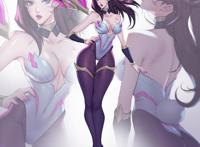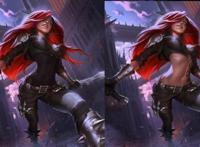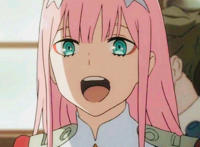可显神迹的人 The man who could work miracles.【上】(2)
2023-09-17 来源:百合文库
It is doubtful whether the gift was innate. For my own part, I think it
came to him suddenly. Indeed, until he was thirty he was a sceptic, and
did not believe in miraculous powers. And here, since it is the most con�venient place, I must mention that he was a little man, and had eyes of a
hot brown, very erect red hair, a moustache with ends that he twisted
up, and freckles. His name was George McWhirter Fotheringay—not the
sort of name by any means to lead to any expectation of miracles—and
he was clerk at Gomshott's. He was greatly addicted to assertive argu�ment. It was while he was asserting the impossibility of miracles that he
had his first intimation of his extraordinary powers. This particular argu�ment was being held in the bar of the Long Dragon, and Toddy Beamish
was conducting the opposition by a monotonous but effective "So you
say," that drove Mr. Fotheringay to the very limit of his patience.
There were present, besides these two, a very dusty cyclist, landlord
Cox, and Miss Maybridge, the perfectly respectable and rather portly
barmaid of the Dragon. Miss Maybridge was standing with her back to
Mr. Fotheringay, washing glasses; the others were watching him, more
or less amused by the present ineffectiveness of the assertive method.
Goaded by the Torres Vedras tactics of Mr. Beamish, Mr. Fotheringay de�termined to make an unusual rhetorical effort. "Looky here, Mr. Beam�ish," said Mr. Fotheringay. "Let us clearly understand what a miracle is.
It's something contrariwise to the course of nature, done by power of
will, something what couldn't happen without being specially willed."
"So you say," said Mr. Beamish, repulsing him.
Mr. Fotheringay appealed to the cyclist, who had hitherto been a silent
auditor, and received his assent—given with a hesitating cough and a
glance at Mr. Beamish. The landlord would express no opinion, and Mr.
Fotheringay, returning to Mr. Beamish, received the unexpected conces�sion of a qualified assent to his definition of a miracle.
"For instance," said Mr. Fotheringay, greatly encouraged. "Here would
be a miracle. That lamp, in the natural course of nature, couldn't burn
like that upsy-down, could it, Beamish?"
"You say it couldn't," said Beamish.
"And you?" said Fotheringay. "You don't mean to say—eh?"
"No," said Beamish reluctantly. "No, it couldn't."
"Very well," said Mr. Fotheringay. "Then here comes someone, as it
might be me, along here, and stands as it might be here, and says to thatlamp, as I might do, collecting all my will—Turn upsy-down without
breaking, and go on burning steady, and—Hullo!"
It was enough to make anyone say "Hullo!" The impossible, the incred�ible, was visible to them all. The lamp hung inverted in the air, burning
quietly with its flame pointing down. It was as solid, as indisputable as
ever a lamp was, the prosaic common lamp of the Long Dragon bar.
Mr. Fotheringay stood with an extended forefinger and the knitted
brows of one anticipating a catastrophic smash. The cyclist, who was sit�ting next the lamp, ducked and jumped across the bar. Everybody
jumped, more or less. Miss Maybridge turned and screamed. For nearly
three seconds the lamp remained still. A faint cry of mental distress came
from Mr. Fotheringay. "I can't keep it up," he said, "any longer." He
staggered back, and the inverted lamp suddenly flared, fell against the
corner of the bar, bounced aside, smashed upon the floor, and went out.
It was lucky it had a metal receiver, or the whole place would have
been in a blaze. Mr. Cox was the first to speak, and his remark, shorn of
needless excrescences, was to the effect that Fotheringay was a fool.
Fotheringay was beyond disputing even so fundamental a proposition as
that! He was astonished beyond measure at the thing that had occurred.
The subsequent conversation threw absolutely no light on the matter so
far as Fotheringay was concerned; the general opinion not only followed
Mr. Cox very closely but very vehemently. Everyone accused Foth�eringay of a silly trick, and presented him to himself as a foolish destroy�er of comfort and security. His mind was in a tornado of perplexity, he
was himself inclined to agree with them, and he made a remarkably inef�fectual opposition to the proposal of his departure.
He went home flushed and heated, coat-collar crumpled, eyes smart�ing, and ears red. He watched each of the ten street lamps nervously as
he passed it. It was only when he found himself alone in his little bed�room in Church Row that he was able to grapple seriously with his
memories of the occurrence, and ask, "What on earth happened?"
He had removed his coat and boots, and was sitting on the bed with
his hands in his pockets repeating the text of his defence for the seven�teenth time, "I didn't want the confounded thing to upset," when it oc�curred to him that at the precise moment he had said the commanding
words he had inadvertently willed the thing he said, and that when he
had seen the lamp in the air he had felt that it depended on him to main�tain it there without being clear how this was to be done. He had not a
particularly complex mind, or he might have stuck for a time at that"inadvertently willed," embracing, as it does, the abstrusest problems of
voluntary action; but as it was, the idea came to him with a quite accept�able haziness. And from that, following, as I must admit, no clear logical
path, he came to the test of experiment.
He pointed resolutely to his candle and collected his mind, though he
felt he did a foolish thing. "Be raised up," he said. But in a second that
feeling vanished. The candle was raised, hung in the air one giddy mo�ment, and as Mr. Fotheringay gasped, fell with a smash on his toilet�table, leaving him in darkness save for the expiring glow of its wick.
For a time Mr. Fotheringay sat in the darkness, perfectly still. "It did
happen, after all," he said. "And 'ow I'm to explain it I don't know." He
sighed heavily, and began feeling in his pockets for a match. He could
find none, and he rose and groped about the toilet-table. "I wish I had a
match," he said. He resorted to his coat, and there was none there, and
then it dawned upon him that miracles were possible even with matches.
He extended a hand and scowled at it in the dark. "Let there be a match
in that hand," he said. He felt some light object fall across his palm and
his fingers closed upon a match.
After several ineffectual attempts to light this, he discovered it was a
safety match. He threw it down, and then it occurred to him that he
might have willed it lit. He did, and perceived it burning in the midst of
his toilet-table mat. He caught it up hastily, and it went out. His percep�tion of possibilities enlarged, and he felt for and replaced the candle in
its candlestick. "Here! you be lit," said Mr. Fotheringay, and forthwith
the candle was flaring, and he saw a little black hole in the toilet-cover,
with a wisp of smoke rising from it. For a time he stared from this to the
little flame and back, and then looked up and met his own gaze in the
looking-glass. By this help he communed with himself in silence for a
time.
"How about miracles now?" said Mr. Fotheringay at last, addressing
his reflection.
The subsequent meditations of Mr. Fotheringay were of a severe but
confused description. So far, he could see it was a case of pure willing
with him. The nature of his experiences so far disinclined him for any
further experiments, at least until he had reconsidered them. But he lif�ted a sheet of paper, and turned a glass of water pink and then green,
and he created a snail, which he miraculously annihilated, and got him�self a miraculous new tooth-brush. Somewhere in the small hours he had
reached the fact that his will-power must be of a particularly rare andpungent quality, a fact of which he had indeed had inklings before, but
no certain assurance. The scare and perplexity of his first discovery was
now qualified by pride in this evidence of singularity and by vague in�timations of advantage. He became aware that the church clock was
striking one, and as it did not occur to him that his daily duties at
Gomshott's might be miraculously dispensed with, he resumed undress�ing, in order to get to bed without further delay. As he struggled to get
his shirt over his head, he was struck with a brilliant idea. "Let me be in
bed," he said, and found himself so. "Undressed," he stipulated; and,
finding the sheets cold, added hastily, "and in my nightshirt—ho, in a
nice soft woollen nightshirt. Ah!" he said with immense enjoyment. "And
now let me be comfortably asleep…








![[人间神迹第一部-人间神祗]引子:月亮神与虫子的对话](/image/loading.gif)
![[人间神迹第一部-人间神祗]引子:月亮神与虫子的对话](/image/loading.gif)






 略显怪异的指挥官的舰娘巡回之旅
略显怪异的指挥官的舰娘巡回之旅







![[人间神迹第一部-人间神祗]引子:月亮神与虫子的对话](https://wimgs.ssjz8.com/thumbnail/2023/0424/135435_61543.jpg)
![[人间神迹第一部-人间神祗]引子:月亮神与虫子的对话](https://wimgs.ssjz8.com/thumbnail/2023/0516/090658_12100.jpg)





